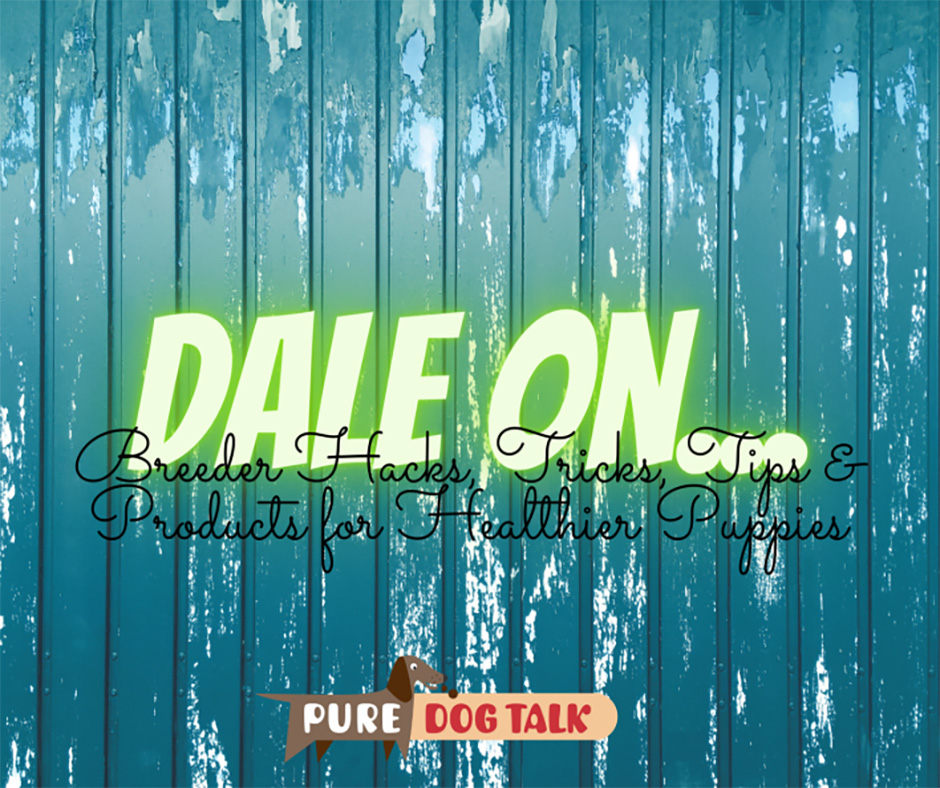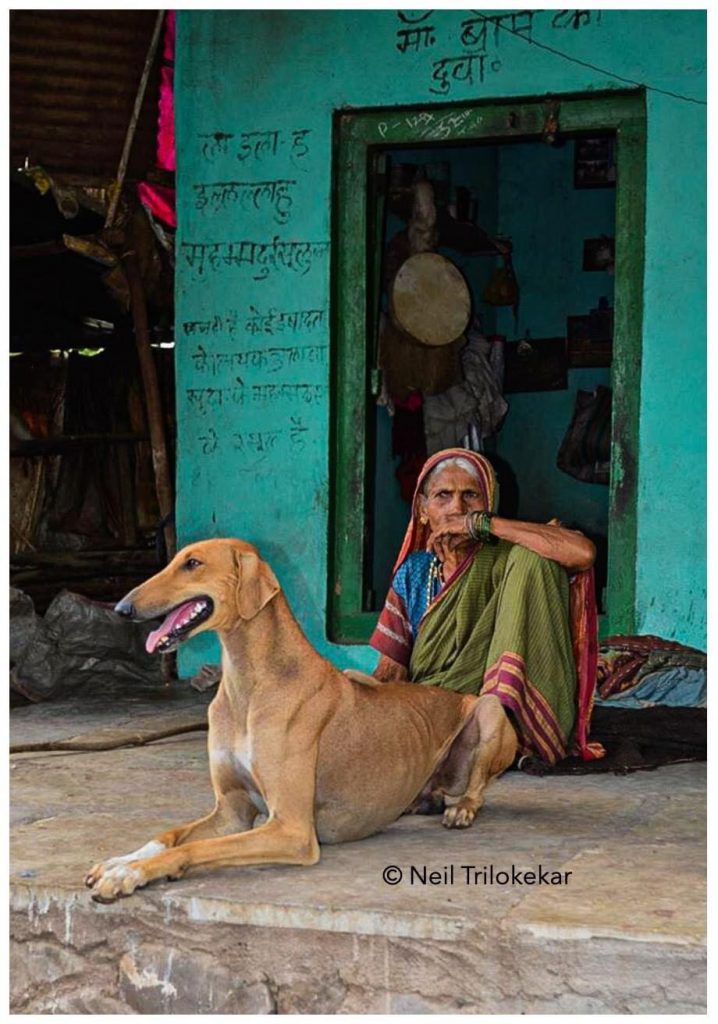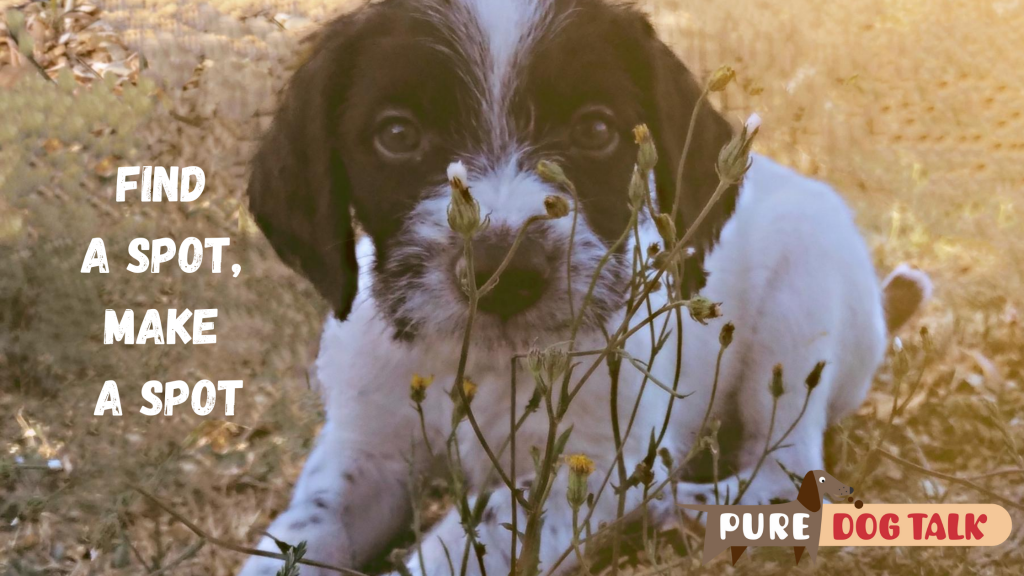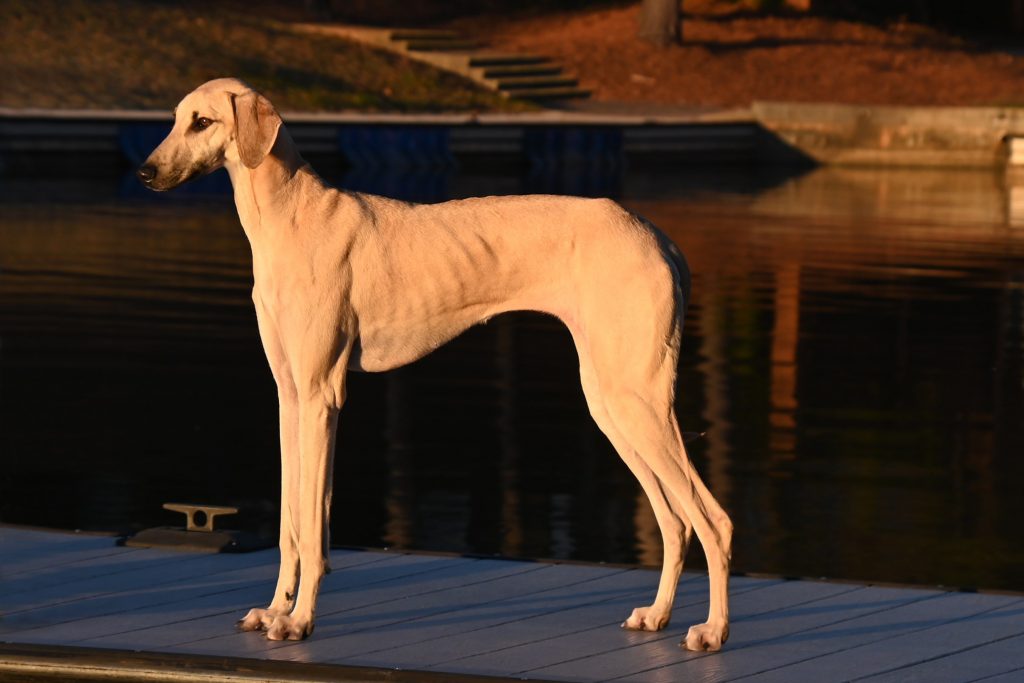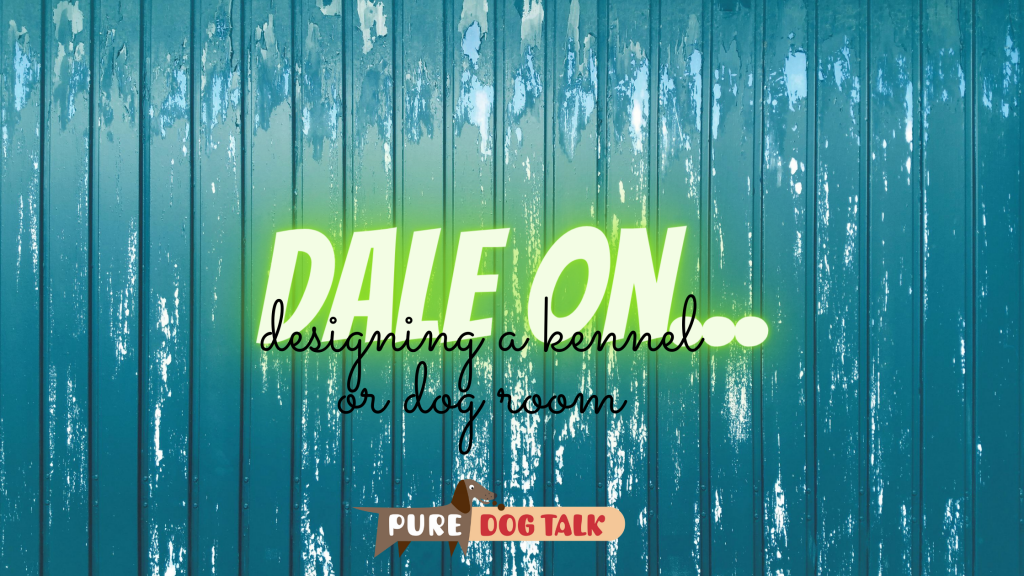425 – Breeder Hacks, Tricks, Tips & Products for Healthier Puppies
Breeder Hacks, Tricks, Tips & Products for Healthier Puppies
Dale Martenson, renowned breeder of Touche Japanese Chin, joins host Laura Reeves to talk about some of our favorite hacks, some of our favorite products, some of our favorite things as dog breeders that don’t necessarily make it into the textbooks.
LISTEN to the episode for more details, by clicking the triangle arrow above.
Milk Balloons
“Litters of puppies, if we were going to put it in the hands of Mother Nature,” Martenson noted, “it would often be more like sea turtles … a certain percentage of them were meant to make it to the water and a certain percentage are not. As breeders, we want to tip the scales. We can add some supportive care, just to give those little turtles a boost to the water, to make it to a healthy adulthood…”
Martenson uses surgical gloves as an alternative method of supplemental feeding. Tube feeding can be difficult and even dangerous if not done properly. Plus, the actual process of suckling is important to the puppies’ digestion and development.
Heat from Down Under
Martenson shares methods for warming puppies while offering the bitch a cooler location in the whelping box, the dangers of heat lamps in general and the importance of providing a heat source *under* the puppies.
Do the Hoky Poky
Flooring for puppies in the whelping box is critical. A number of studies indicate that puppies whose feet slip while nursing or navigating the box are more likely to develop hip dysplasia. Martenson recommends small carpet remnants for toy breeds. We agreed that large, rubber backed washable fleece pads are a better choice for larger breed dogs.
Pumpkin Powder to the Rescue
Only dog people are as obsessed with poopy. The product Martenson recommends helps pups transition to new water, new schedule, new environment, possibly new food with no intestinal upset.
Eat up!
“ENTYCE is a fantastic appetite builder. So say your female isn’t wanting to eat and she’s 50 days, she’s trying to have pregnancy toxemia on you. Then you’re looking at hand feeding, syringe feeding, whatever kind of feeding we can do to make this happen. We’ve had fantastic results with that or traveling to the dog show and they’re not wanting to eat on the road. “
424 – Senior Living: Simple Hacks and Good Medicine for Old Dogs
Senior Living: Simple Hacks and Good Medicine for Old Dogs
Dr. Marty Greer joins host Laura Reeves for a discussion of Senior Dogs in this month’s Veterinary Voice. Marty and Laura drill down on current medicine and important life hacks for our old dogs, adding to the information in our episode on Canine Cognitive Dysfunction.
DHA and Fatty Acids
Specially formulated and prescription diets from the top dog food companies are researched and tested just for senior dogs, Greer noted.
“We’ve seen (for example) Purina come to market with two diets,” Greer said. “One is called Bright Minds. You don’t need a prescription for it, you can buy it at your local feed store. Then their higher level, it’s got three times the amount of fatty acids and some of the other important nutrients in it called Neural Care, which is a prescription diet. We’ve seen behavioral changes on that. We’ve seen reduction in number of seizures. So there’s a lot of really interesting things we can do. We feed our dogs anyway. You’re not talking about putting him on a drug or putting him on anything different, you’re just talking about changing their diet to something that’s going to improve their cognitive function.”
Pulse Dosing
“One of my favorite things to do for these old guys that you’re reluctant to do anesthesia on is called pulse dosing of an antibiotic,” Greer said. “The pulse dosing works that you give it for five days every other month. It does a really good job on the anaerobic bacteria that live under the gums of our dogs as they get older that cause that really foul, nasty breath. So, it actually reduces the bacterial load in their mouth. It’s a really nice way to keep your dog’s mouth more healthy without using an anesthetic procedure.
“The dose is 11 milligrams per kilogram, twice a day for five days, and it will considerably improve your dog’s health. We know bad teeth aren’t just a bad breath issue, we know that it causes heart disease, kidney disease and systemic disease.”
Download today’s episode or more products recommendations, tips and hacks!
423 — Cancer Specialist Provides Important Tips on Early Detection
422 – Exploring the Caravan Hounds of India
421 – Find a Spot, Make a Spot: SniffSpot for Dogs and Their People
Find a Spot, Make a Spot: Sniffspot for Dogs and Their People
David Adams, founder of SniffSpot, joins host Laura Reeves to share details of the hot new alternative to dog parks.
“The easiest way to say it is AirBNB for dog parks and here’s how it works,” Adams said. “So the people that are using Sniffspot to rent yards, they’re dog owners, they’re trainers. Some of them are traveling and they need safe and private spaces to exercise their dogs, train their dogs what have you. It’s actually a huge need, especially since more dogs are living in cities and suburban areas. Public dog parks, it’s important to have them just like public parks and they’re free and open and that’s great, but it also has a flip side, which is that there’s no control over who’s there, often they’re underfunded, under maintenance, not cleaned frequently …
“How we’re serving this need is by letting anyone turn land or their yard or their facility into a private dog park. It’s a very easy process to go through. The host can help dogs. There are a lot of dogs that need this and you can actually make pretty good income. We have hosts that are pushing up towards $2000 a month in income through renting out their space on Sniffspot, so it can actually make a big difference.
“We protect our hosts. All of our users are signing a waiver before they can even come use (a spot) …it acknowledges that everything that happens is the responsibility of the user at the spot and they’re using at their own risk. If there ever is a problem from a liability perspective we also provide $1,000,000 of liability insurance with each booking. If there’s ever a problem with damage, like let’s say the gate gets broken or something else we provide damage protection to hosts as well.”
420 – Living History on the Silk Road
Living History on the Silk Road
Landrace or Breed in Asiatic Sighthounds
Dedicated dog enthusiast and researcher Neil Trilokekar joins host Laura Reeves on the fascinating topic of Asiatic Sighthounds and their development from the landrace dogs of the Silk Trail over the Millenia.
Listeners may remember Trilokekar as part of our panel discussion of “new” exhibitors. This extended conversation touches on his personal
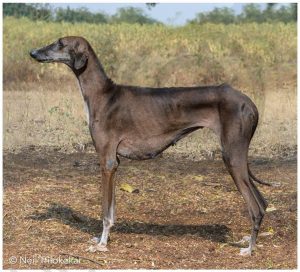
Caravan Hound from India. Photo credit: Neil Trilokekar
journey searching for authentic Caravan Hounds in his homeland.
The recent news of researchers nailing down the DNA of some sled dogs as a landrace, prompted the opportunity to dig into the endlessly intricate history of the elegant dogs of Central Asia. Additional DNA studies gather more information on the evolutionary development of landraces and the breeds that follow.
Landraces in dogs are defined as “dog or any livestock animal has been bred without a formal registry, although their breeders may have kept written or informal pedigrees of their animals.” These are distinguished from dog breeds which have breed standards, breed clubs and registries. Trilokekar expands on this concept in relation to the breeds about which he is passionate.
“My understanding of the concept of landrace as it relates specifically to Asiatic sighthounds, which is what I’m most familiar with,” Trilokekar said, “is that this type of dog which we could refer to something similar to saluki, probably originated in Mesopotamia or somewhere in Central Asia at one point. Then just through the natural course of human history kind of spread out to various parts of Asia, and in some cases North Africa as well, and evolved through selection by the local populace or the demands of climate and terrain and the local game into different breeds or types however you choose to see it.
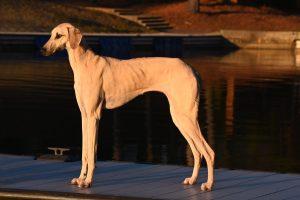
Sloughi from North Africa. Photo courtesy Erika Wyatt
“…let us presume this Asiatic sighthound type originated in Mesopotamia and from there spread into Afghanistan and became the type of dog we now refer to as an Afghan hound. They needed more hair because it was cold, and a slightly different structure to work in different terrain. … and spread out to North Africa, where it became the Sloughi.
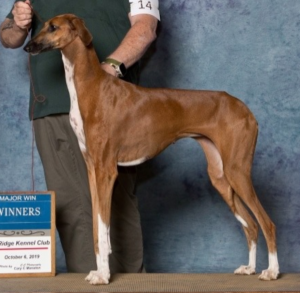
Azawakh from Central Africa. Photo courtesty Patrick Guilfoyle.
“So this is my understanding of what a landrace is. Something that occurs naturally because of human history more than someone sitting down and, for example like Louis Doberman saying I’m going to create history. I think it varies depending on the location, on the population. The Tuareg bred their dogs (Azawakh) to resemble camels, which they value above all else, so therefore you have the standing rectangle shape. That’s an active thing versus the passive. The population’s like this is the ideal of beauty for them so they are going to create dogs that resemble the camel, whereas I would imagine the Bedouin that is a more passive role because they are going solely on bringing dinner in.”
Watch this space for part two of this detailed and passionate conversation, continuing with the Caravan Hounds in India.
419 – Juniors: Skills That Apply in High Powered Careers
Juniors: Skills That Apply in High Powered Careers
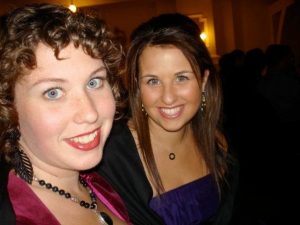 Carley and Cameron Simpson join Laura Reeves for a frank, inspiring conversation on how the skills they acquired as top tier junior handlers have influenced their high powered career paths 20 years later.
Carley and Cameron Simpson join Laura Reeves for a frank, inspiring conversation on how the skills they acquired as top tier junior handlers have influenced their high powered career paths 20 years later.
Work ethic, timeliness, handling disappointment, setting goals, confidence and the edge of determination carried them from rural Washington to the sets of Hollywood and the tracks of international bicycle competitions.
“So really the work ethic and the loyalty and determination and consistency, it all came from having these animals,” Cameron said, “and having to take care of them and knowing that they depend on you, there’s no option to not take care of them.
“It taught us our work ethic. To this day it’s very noticeable in my work environment that I definitely work a lot harder and I take my job very seriously. Anything I do, I put in 100%.”
“Currently I produce television,” Carley said. “I’m an executive producer, just finished up with a Netflix series. (T)imeliness is something I feel every day in my work. Literally we are starting on time and it’s thousands of dollars every minute we go over you know or 10s of thousands of dollars it can be. So the importance of being at a ring at 8:00 AM because you know that that judge is not gonna wait for you has directly translated into my job today.
“When I was in juniors I worked for a number of handlers and I remember I would put post-it notes on my mirror in my bedroom. One of those goals that I had written was to win the Garden. I worked my butt off every little step to try to get to that goal. That goal was always in the back of my mind for everything I did growing up and working with dogs. I didn’t win the Garden, but the fact that I made the finals, the fact that I got Third (in Juniors) it was a cherry on top. That to me was winning. When you learn to work at such a high level in a competition like dog sport, it directly translates then into your later life. You want to always achieve that high level of success again. You’re always working toward, ‘Can I get there. Can I get to that highest level.’”
The only woman in the room
“This (is a) career where it is very uncomfortable to be the only woman standing in the room,” Cameron said of her work in the high-end bicycle industry. “And it’s even more uncomfortable to be the only woman standing in the room who knows more than all of the men in the group and it only takes that little bit, just that break of ice, before everybody else in the room is like, ‘oh OK, yeah we see you as a human, you know we see you as a person, and as an advisor and as an employee, as a helper. All of that has been from dog shows. It’s been from just kind of having that (attitude) of ‘maybe I don’t belong here but I’m going to try anyways’ or I’m going to observe and adapt the situation to win.
“That was something that my mom always taught us. She had this quote, it lives with me every day, which is ‘Life is a game. Play it.’ And I think I took that to the Max. Especially with juniors. If there was a judge who was very eccentric and I could tell that you could win by doing A, B or C, I would do that. A judge who wanted you to look at her every 3 seconds, I did it. I tripped and fell and I won… so it was things like that. I would never show a dog like that, that’s not my style. But that was the game right then and that was the game to win.
“Carley and I are strong enough to realize that we have to love what we do in order for us to put the energy into what we do. We have to love it and so both of us really took that to heart early on. I can’t sit at an office and do this exercise. I have to go out and get a job that it’s gonna push me, that’s going to teach me, that’s ever changing, that’s growing, that has a ton of demand and that’s what we both did. I mean both of us hold very unique jobs in very competitive industries.”
Aim for the Top
“It doesn’t matter what the task is at hand,” Cameron said. “Do it better than anyone else around you. Then you won’t have to do it again and can achieve something better after that. No matter what you’re doing, if you’re going to show this dog study the ring, study the judge, study the game and play it. Don’t just go in half-ass and try to see what you can do. That’s never really gonna work.”
418 – Cancer: Genetics, Environment or Both? Study Seeks Answers
Lori Cesario DVM DACVIM (Oncology), Owner, Canine Cancer Academy joins host Laura Reeves in a conversation about Cancer in dogs. Cesario breaks down what we know and what we don’t know about cancers, genetic basis, environmental triggers and more.
“I would say that we don’t know more than we know, unfortunately,” Cesario said. “I always feel like I leave people wanting a lot more when I have clients ask me why their dog developed cancer. Hopefully that will change. A lot of smart people are working really hard to find more information.
“The big picture is typically no one thing is going to 100% cause cancer in any one dog or person. So we’re looking for risk factors. So does your dog being a certain breed increase risk for developing a certain type of cancer? Or does a certain environmental component increase his or her risk for developing a certain cancer. In people we have some information about certain diets or components of diet increasing certain types of cancers. We’re really lacking a lot of that information in veterinary medicine.”
Cesario notes an important and wide-ranging study of Golden Retrievers that is seeking to answer some of these questions.
“The Morris Animal Foundation is running this study … they have 3,044 Golden retrievers participating and the goal is really to follow these thousands of Golden retrievers over their entire lifetime and get really an exhaustive amount of information. From what is going on in their environment, with their diet, with their genetics, to really determine what nutritional genetic, and environmental factors contribute to cancer and other diseases.
“Not only are they doing routine physical exams, not only are they collecting blood and hair and toenail samples on a regular basis, but they are asking the family questions like does your dog live with a smoker? Do you have carpet or hardwood floors? What does your dog eat? Does it eat vegetables? What type of vegetables? OK bell Peppers, what color Bell Peppers? How many Peppers? Does your dog swim in the pool? In a pond? At the beach? In the ocean?
“So, they’re getting as much information as possible and then they’re banking all of this data and other researchers can use the data. Then over time, they’re finding out which of these dogs develop certain diseases which don’t. We know that up to 65% of goldens will die of cancer, unfortunately, so they decided to run a parallel study called the Golden Oldies study. They are currently recruiting dogs. So basically, they’re looking for Golden Retrievers, purebred ideally, AKC registered better, 12 years old or older that don’t have cancer currently that have never had cancer.”
The link for the Golden Oldies study:
https://www.morrisanimalfoundation.org/golden-oldies-contact-form
417 – Dale On…. Designing a Kennel Building or Dog Room
416 – Neonates: 6 Danger Signs to Watch for in Your New Litter
Neonates: 6 Danger Signs to Watch for in Your New Litter
Doctor Marty Greer joins Host Laura Reeves to talk about a topic that is near and dear to both of them. Troubleshooting guidelines for neonates and baby puppies.
“About the time you think you know it all is when somebody puts their thumb on you and says ha just kidding,” Greer said.
Greer’s four “Hs” for newborn puppies are:
- Hydration
- Hypoxia
- Hypothermia
- Hypoglycemia
“We need to start with making sure that the puppies get delivered quickly enough that they can get out of the birth canal, out of the sack, out of the C-section, whatever direction they come out, get the sac off the face, airway cleared and oxygen delivered as quickly as possible. That’s really critical to good health, good brain development and the whole rest of the cascade starts with that,” Greer said.
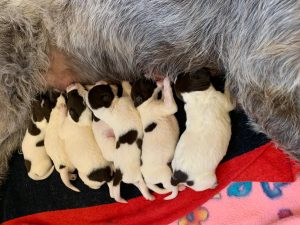 “Hydration goes along with food,” Greer observed. “With a puppy, if they’re not nursing, they’re going to dehydrate and if they’re gonna not nurse, they’re going to have low blood sugar. These all intertwine.
“Hydration goes along with food,” Greer observed. “With a puppy, if they’re not nursing, they’re going to dehydrate and if they’re gonna not nurse, they’re going to have low blood sugar. These all intertwine.
“It’s really important that we keep the puppies nursing. If they’re not adequately nursing then the way to assess that is going to be if they’re not gaining weight and if their urine color isn’t a pale, pale yellow. Puppies should not have a dark colored urine after the first time that they urinate. So it should be pale yellow. The puppy should be gaining weight. You can’t really assess hydration on a puppy the way you do an adult dog or cat where you pinch the skin on the back of their neck and see if it seems tacky or sticky because puppies don’t have enough body fat to have that work the way it does another ages of animal. So we really have to look at urine color and weight gain.
Danger Signs
“You’ll see a puppy that seems weak, seems lethargic, seems listless. It may be really quiet or it may be crying. It just depends on the puppy and what stage in which they are.
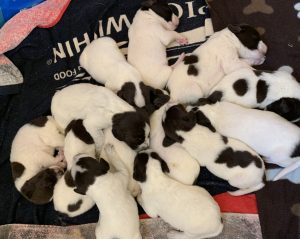 “I see a puppy off by itself, it may not be that the bitch pushed the puppy away. It may simply be that that puppy needs to be warmed, needs to be hydrated, need some oxygen. You do those three things — you feed it, you hydrate it, you warm it up, you get oxygen. And boom. All of a sudden, that puppy regains its strength and it starts to compete and be back with the rest of the group very quickly.
“I see a puppy off by itself, it may not be that the bitch pushed the puppy away. It may simply be that that puppy needs to be warmed, needs to be hydrated, need some oxygen. You do those three things — you feed it, you hydrate it, you warm it up, you get oxygen. And boom. All of a sudden, that puppy regains its strength and it starts to compete and be back with the rest of the group very quickly.
Listen to today’s episode for more tips from Dr. Greer.
For more information in previous episodes, check out some of these links.
https://puredogtalk.com/podcast/127canine-herpes-and-puppy-fatalitiesdr-jean-doddspure-dog-talk-2/
https://puredogtalk.com/podcast/14-dr-gayle-watkins-2-breeders-guide-to-neonatal-puppies-2/

